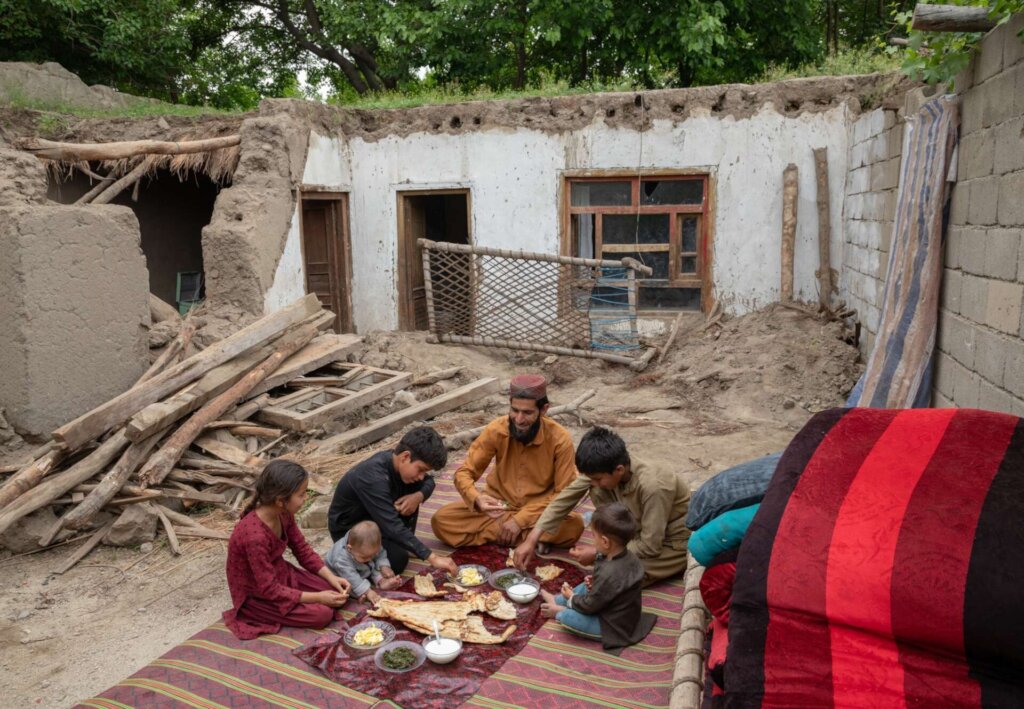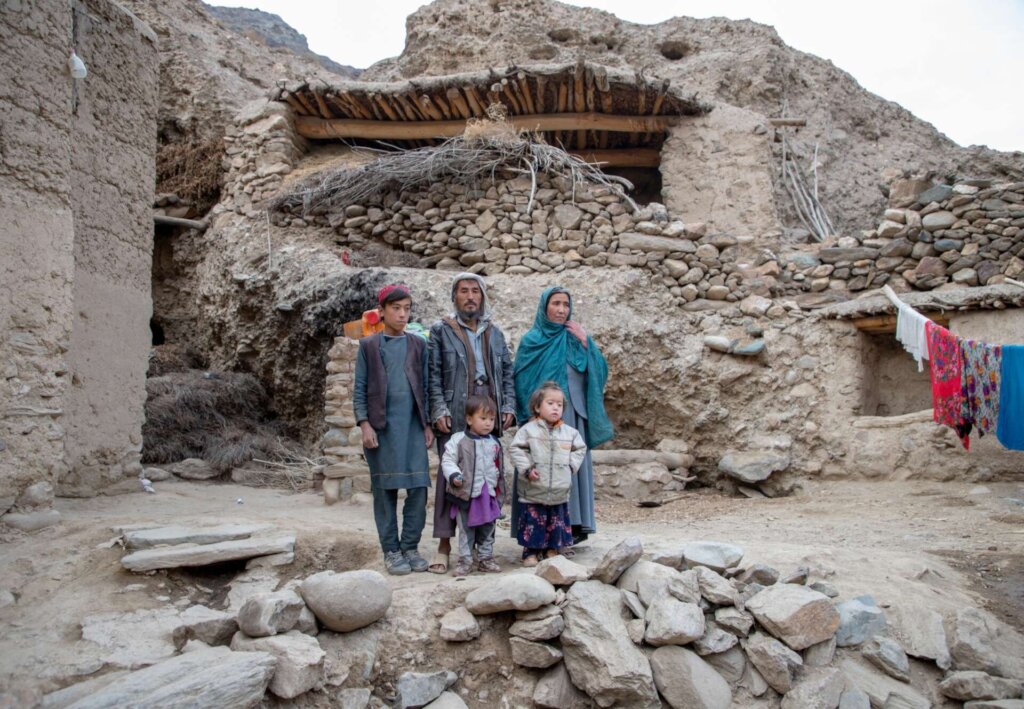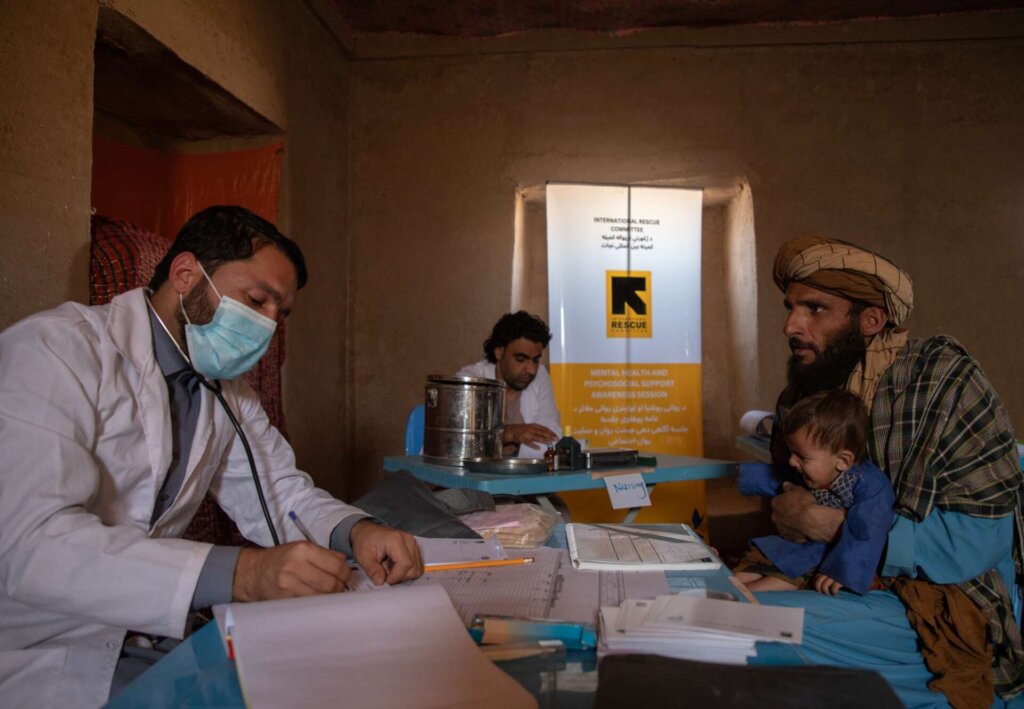By Savannah Paolillo | Donor Services
Families in Afghanistan continue to face food insecurity, disease and ongoing instability. For 23 million Afghans, U.S. aid funding has been a critical lifeline—but that support is now in jeopardy. Funding cuts are already having devastating impacts on the country’s most vulnerable communities, especially women and children.
Since the 1980s, the International Rescue Committee (IRC) has been delivering critical assistance to Afghans. Today, these programs—and the hope they provide—are at risk. Due to cuts in U.S. aid funding, the IRC has been forced to suspend some of our life-saving services in Afghanistan. We remain committed to supporting the people of Afghanistan—but we need your support. Meet the Afghans whose lives have been transformed by IRC programs and find out how you can make a difference.
Crisis in Afghanistan: What are people facing?
Afghanistan is facing a severe humanitarian crisis, with over 22.9 million people in urgent need of aid. Decades of conflict, a prolonged economic crisis, and environmental disasters have pushed millions into poverty and left more than one in three Afghans food insecure. The situation is especially dire for vulnerable groups, including over 3 million children and 1.2 million pregnant or nursing mothers suffering from acute malnutrition. Restrictions on women’s access to work have left many women-led households without an income, increasing their risk of hunger and malnutrition. At the same time, girls are barred from attending school past sixth grade, depriving them of education and future opportunities.
How are U.S. aid cuts impacting Afghanistan?
For years, U.S. funding has provided a lifeline for millions of Afghans facing ongoing crisis. However, recent aid cuts have forced the IRC to suspend critical programs that provide health care, vaccination, malnutrition treatment, clean water and protection services. As a result, over 700,000 people, including refugees and displaced families, will lose access to essential humanitarian services from IRC programming alone. Life-saving treatment for more than 15,000 young children suffering from malnutrition has been disrupted.
Across the country, more than 14 million people have limited or no access to health care. Communities are losing access to clean drinking water and basic sanitation services, creating a higher risk of disease outbreaks that could potentially spread across international borders. At the same time, vital programs that provided income and support for families are coming to a standstill, leaving many without the resources they need to survive. Without renewed funding, countless families risk falling deeper into hunger, illness and poverty. Urgent support is needed to help the people of Afghanistan survive, recover and rebuild their lives.
How can I help the people of Afghanistan?
As U.S. humanitarian aid funding is cut, families across Afghanistan are being pushed deeper into crisis. But with your support, we can continue to provide lifesaving assistance to the communities that need it most. Your donation empowers the IRC’s lifesaving work, from delivering medical services, cash assistance, education programs and so much more. Sustained funding is essential to helping families survive, recover and rebuild their lives. We consistently earn top marks by charity watchdog groups for our efficient use of donor contributions and the effectiveness of our work.
Project reports on GlobalGiving are posted directly to globalgiving.org by Project Leaders as they are completed, generally every 3-4 months. To protect the integrity of these documents, GlobalGiving does not alter them; therefore you may find some language or formatting issues.
If you donate to this project or have donated to this project, you can receive an email when this project posts a report. You can also subscribe for reports without donating.
Support this important cause by creating a personalized fundraising page.
Start a Fundraiser

